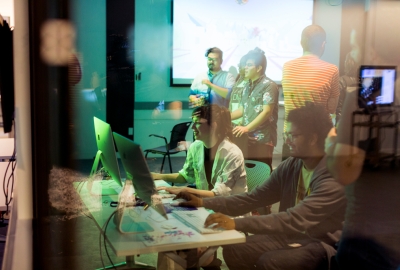“In this experiential, hands-on course, students investigate the origins and meaning of
environmental justice while developing skills in GIS and spatial analysis. GIS is a
technology widely used in environmental conservation, urban planning, public health,
and other fields for creating, analyzing, and mapping location data with other descriptive information. Students learn to interpret and create maps to tell a story about the environment, pursue their research interests, and engage with classmates and guest speakers working in the field."
Course #
ENYC-GE 2018
Credits
3
Department
Teaching and Learning


